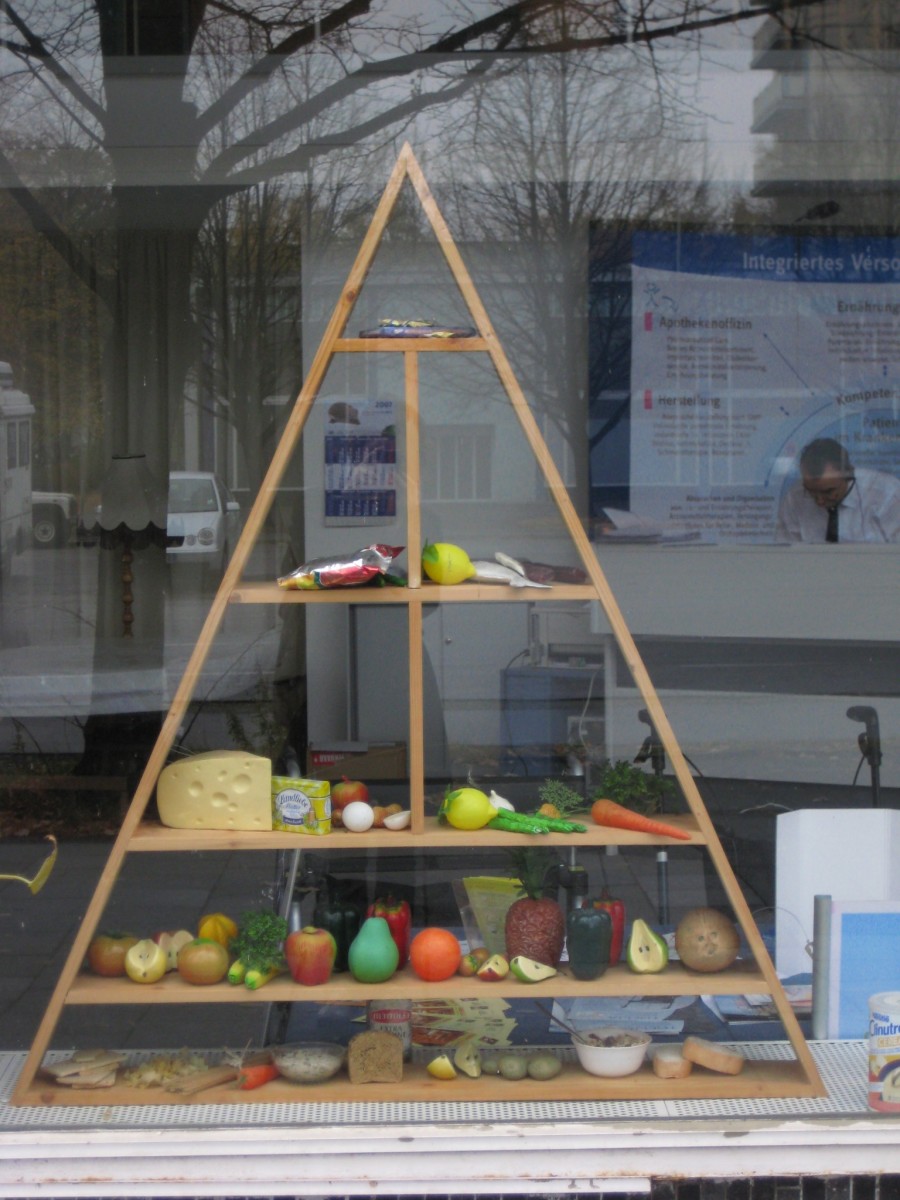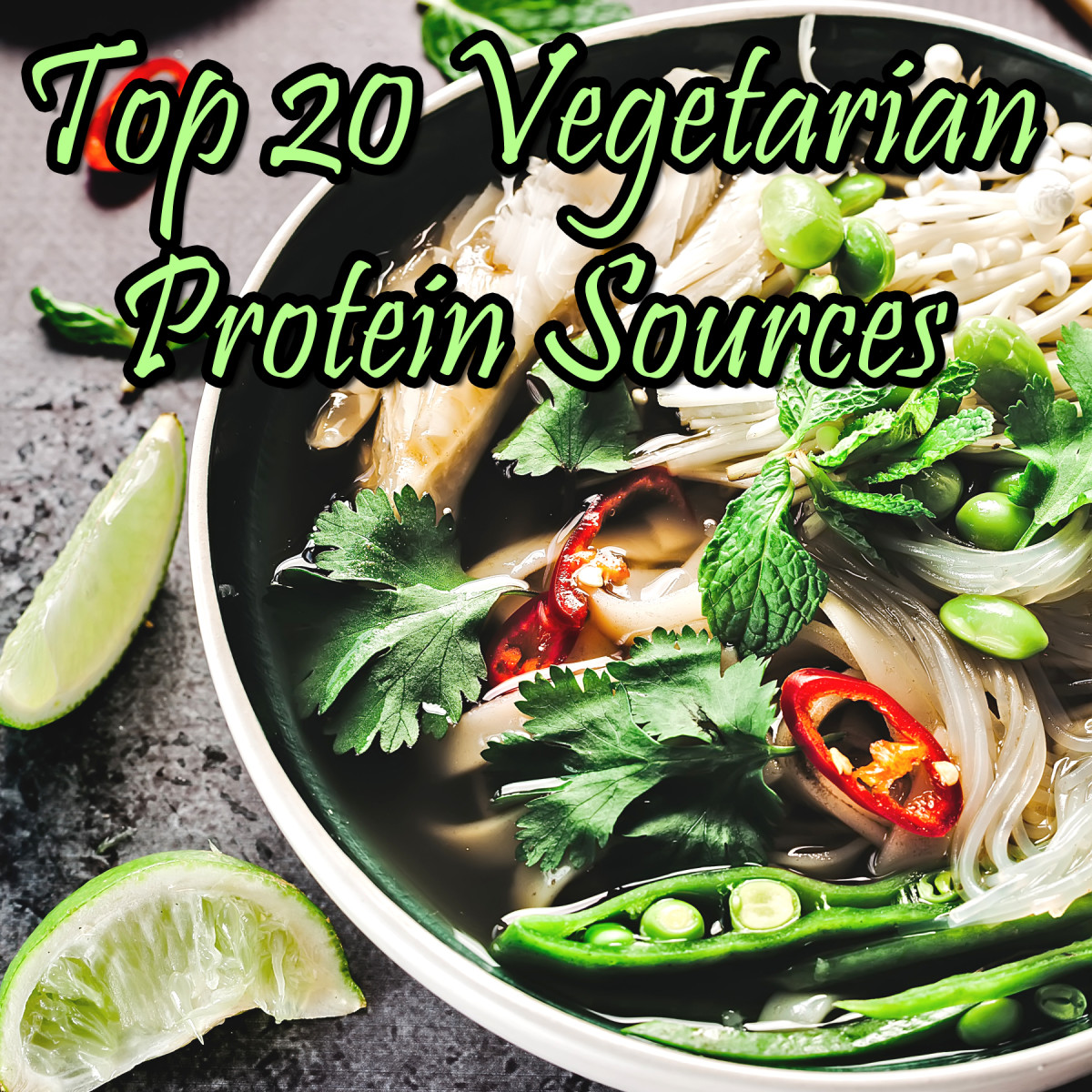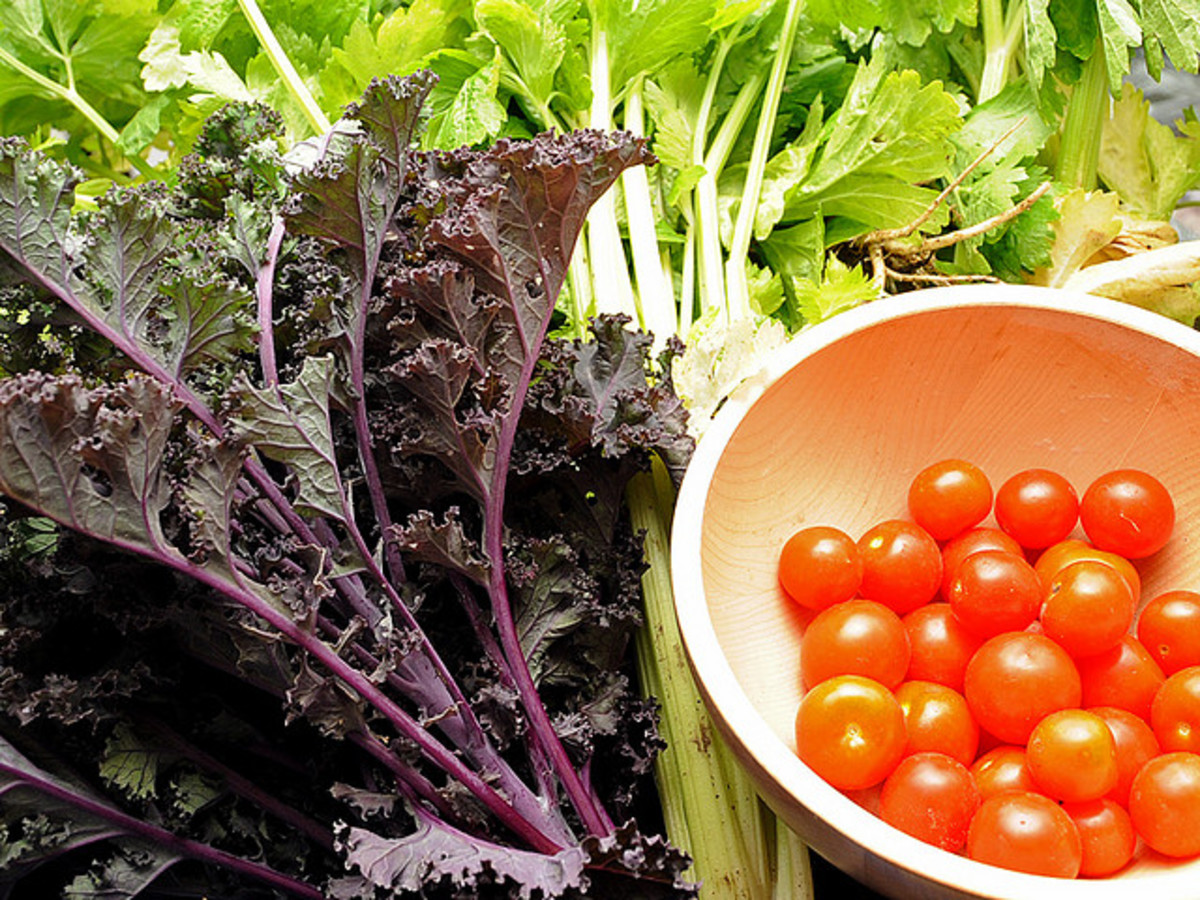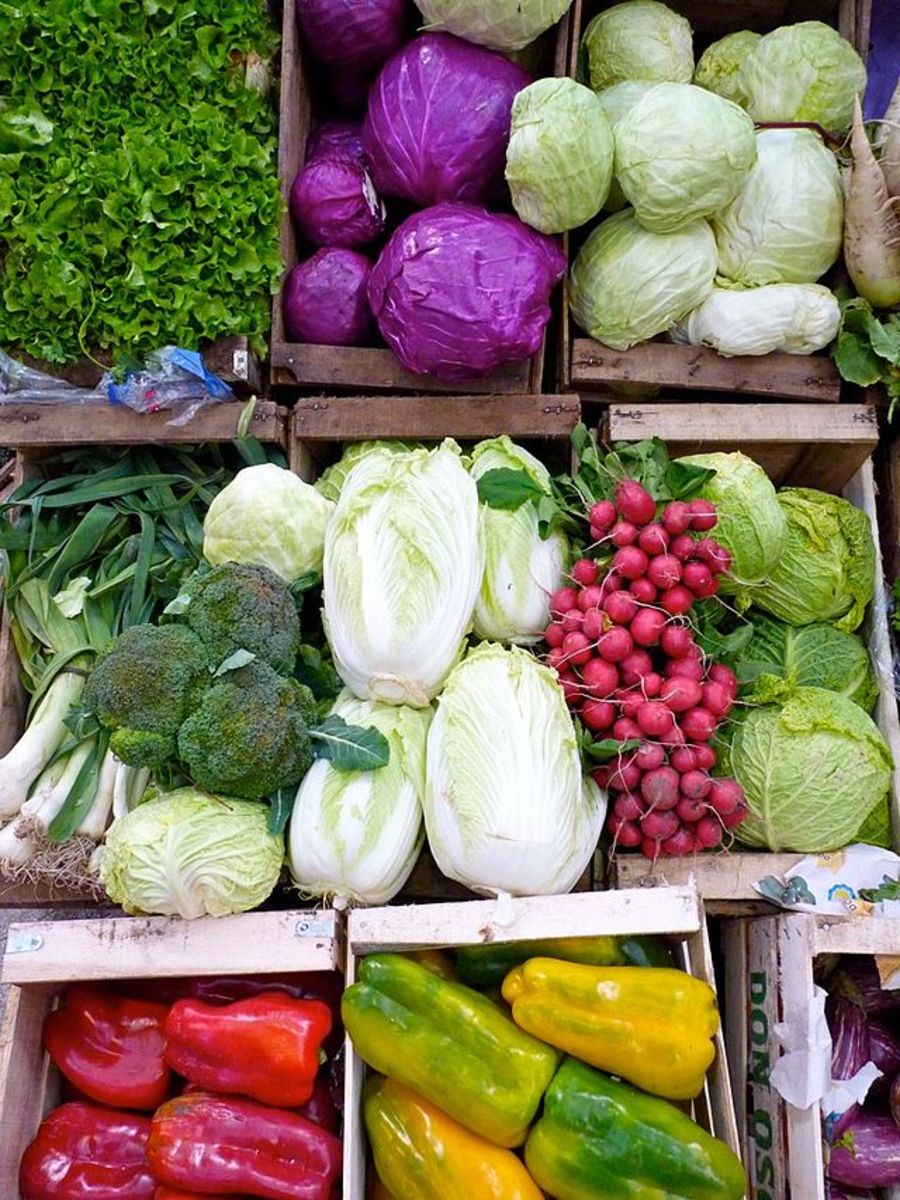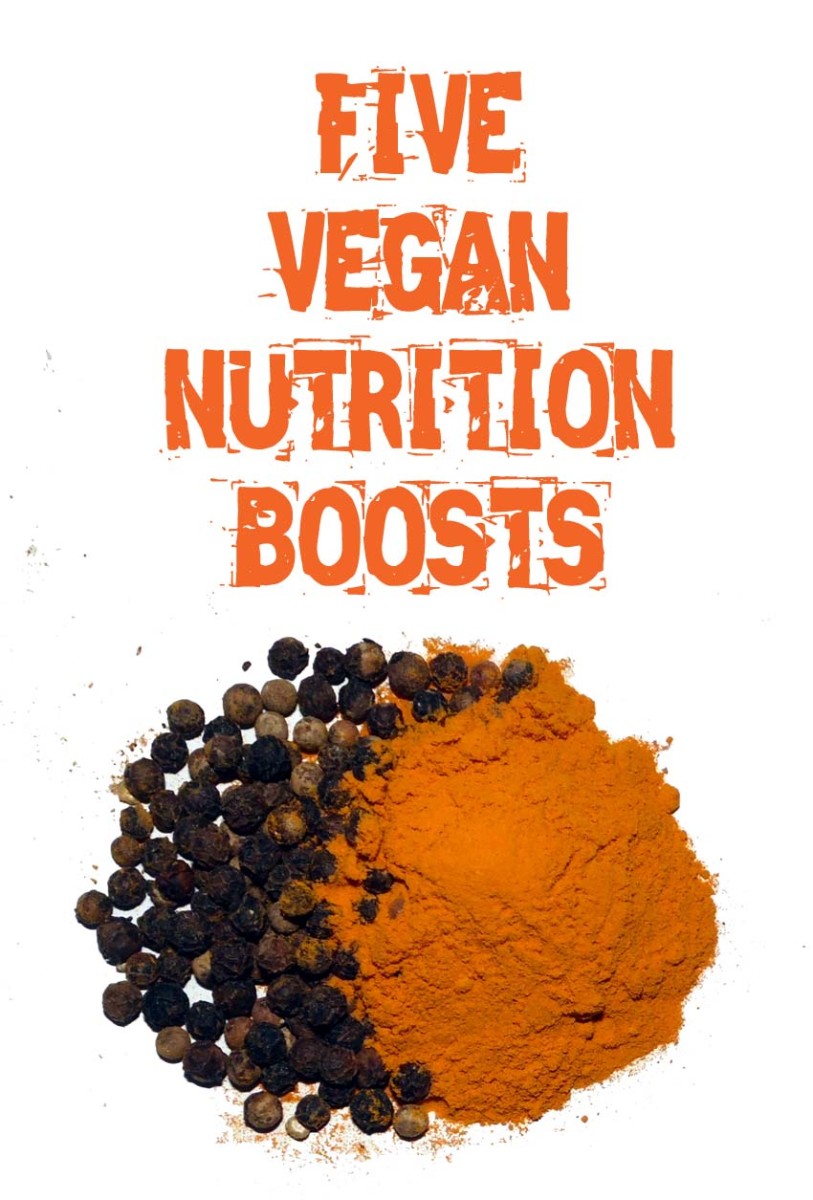Health Benefits of Being a Vegetarian - Why You Should Go Veggie
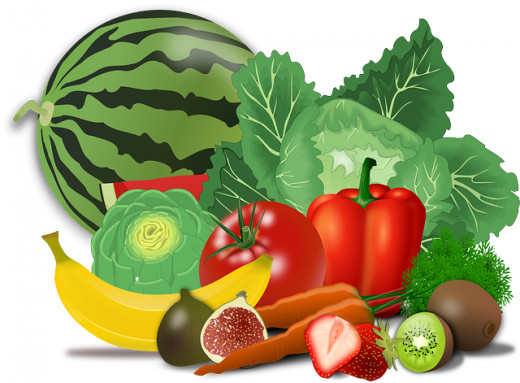
What is a vegetarian?
A vegetarian is somebody who does not consume any kind of meat. They do eat dairy products, eggs, grains, fungi, nuts and vegetables though.
(Vegans do not consume any animal products whatsoever - dairy, eggs, milk)
Why do people become vegetarian?
There are many different reasons as to why people decide to adapt a diet consisting only of non-meat foods.
These may be because of their religious beliefs, they are ethically against the eating and killing of animals, they want a healthier lifestyle for themselves and their family, maybe their doctors recommended it, they're trying to lose weight, they want to save money, or they simply don't like the taste of meat.
But here we're going to talk about the health benefits of switching to vegetarianism.

Health benefits of being vegetarian:
- Radiant skin - Diets high in plant foods are a rich source of antioxidants and vitamins perfect for healthier skin, and who doesn't like having lovely skin?
- Lower blood pressure - Naturally low in both sodium and fat, switching to vegetarianism can reduce blood pressure and improve circulation.
- Longer life span - Vegetarians have less chance of becoming obese, developing diabetes, hypertension, cancer and cardiovascular diseases. All of which lower your life expectancy.
- Nourishment - Vegetables, fruits, grains and nuts supply us with all the nourishment we need. They contain vitamins, minerals (calcium and iron) as well as fibre.
- Healthier heart - Red meat is high is saturated fat which raises your cholesterol and can lead to heart disease.
- Weight loss - Meat eaters gain more weight over time than vegetarians do, and the vegetarian option is, in most cases, less calories than the meat.
- Toxin-free - It's been suggested that if an animal experiences fear before it dies, the adrenaline and other stress hormones are released into the bloodstream, which is then eaten by the person and can be toxic.
- Less pesticides - Meat contains approximately 15 times more pesticides than plant food does.
- Low saturated fat - Most vegetarian recipes use all-natural oils and cooking methods to enhance the flavour. This means no unhealthy saturated fat which leads to a variety of heart problems and cardiovascular disease.
- Better digestion - Fruit and vegetables are rich in fibre, which improves digestion. High fibre diets can also reduce the risk of cancer.
- Higher energy levels - The body doesn't take as much time/effort digesting as there isn't any animal protein, so you will have more energy.
- Healthy amino acids - Amino acids are organic compounds which combine to make proteins. Plant-based proteins (e.g. soy) are a great source of amino acids that help with your metabolism and protein assimilation.
- Safer iron levels - The iron in meat is more readily absorbed than the iron in plant-based foods. This used to be seen as an advantage but it can be a case of too much good. Feeding the body with too much iron can lead to an increased risk of cancer, cirrhosis of the liver, heart disease, diabetes and infertility. A vegetarian is more likely to have safer revels stored iron.
- Naturally vegetarian - The human body is designed for a vegetarian diet. A herbivore's intestine is 16-29 feet long and curves around, whereas a carnivore's intestine is much shorter and straight, so that they can eliminate the meat before it rots. The human intestine matches the herbivore's rather than the carnivore's.
- Fish toxins - Fish is high in fat and calories with no fibre. Fish are filled with dangerous toxins that are absorbed from polluted water. Bigger fish eat smaller ones and the toxins build up.
- No more food poisoning - Food poisoning tends to start from meat or poultry infected with salmonella and E.coli. Undercooked meat or reheated meat is full of bacteria. It's much safer to eat just vegetables, grains, and fruit.
- More taste - Eating meat by itself (with no sauce, dressings, salt and pepper, etc.) tastes so bland. Fruits and vegetables, however, have an array of flavours, with no need for enhancing.
Conclusion
So, as you can see, there are plenty of benefits health-wise to adopting the vegetarian lifestyle (less risk of cancer, high blood pressure, diabetes, coronary heart disease, constipation, food poisoning, etc.) - not to mention you might just feel a little better in yourself knowing that animals aren't dying for you and your stomach.
Are you a vegetarian?
© 2014 Maria Jayne


